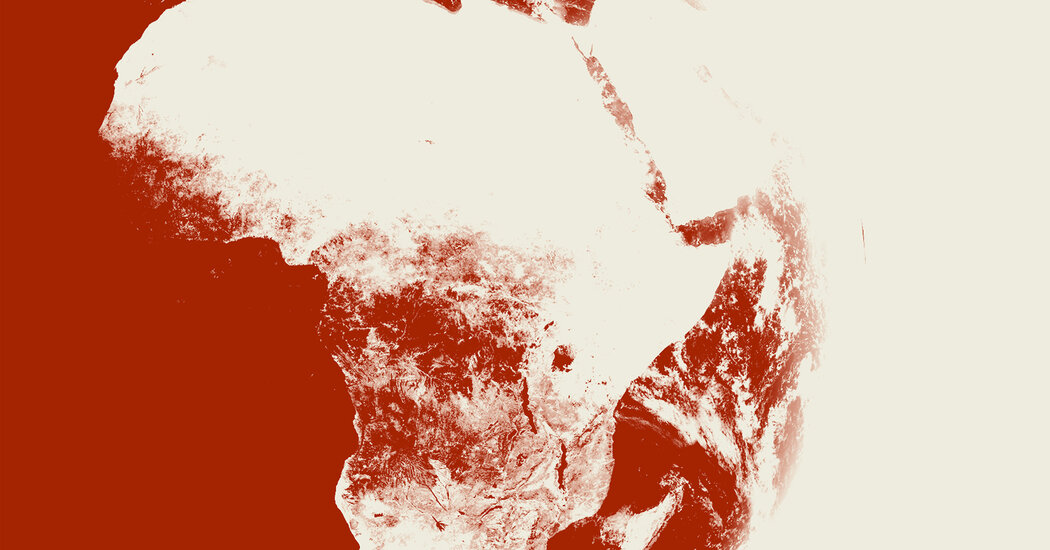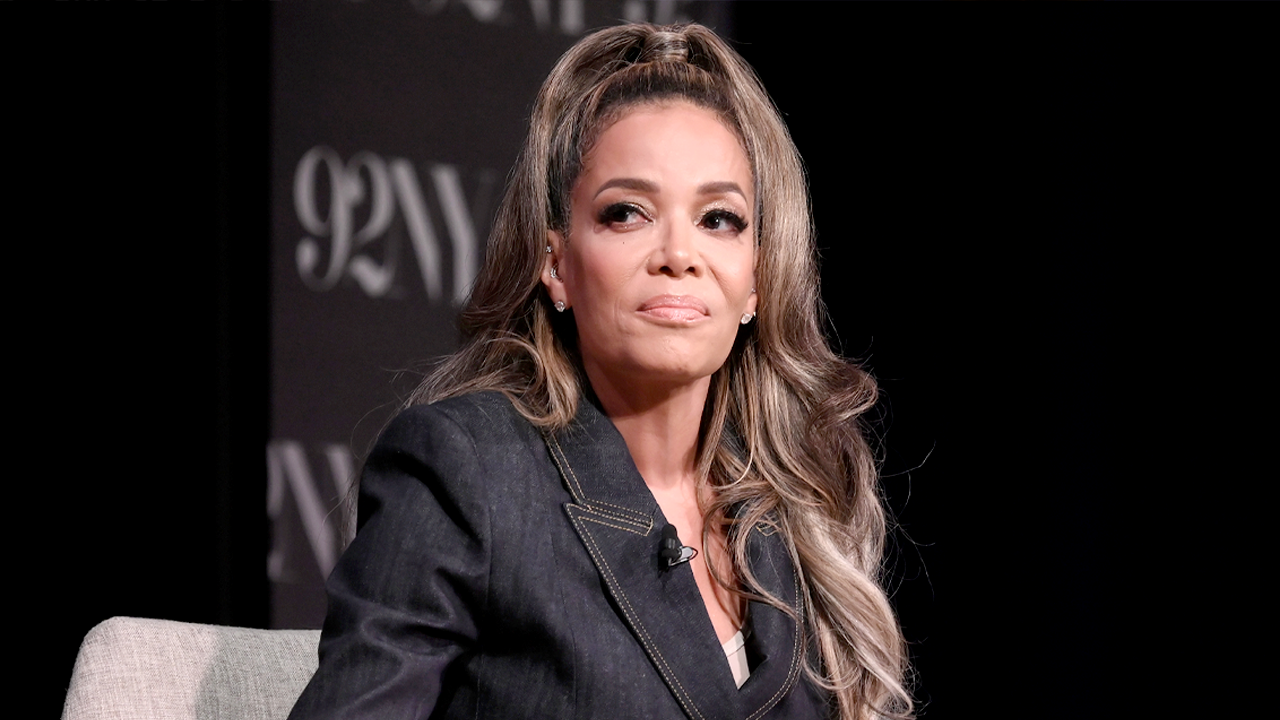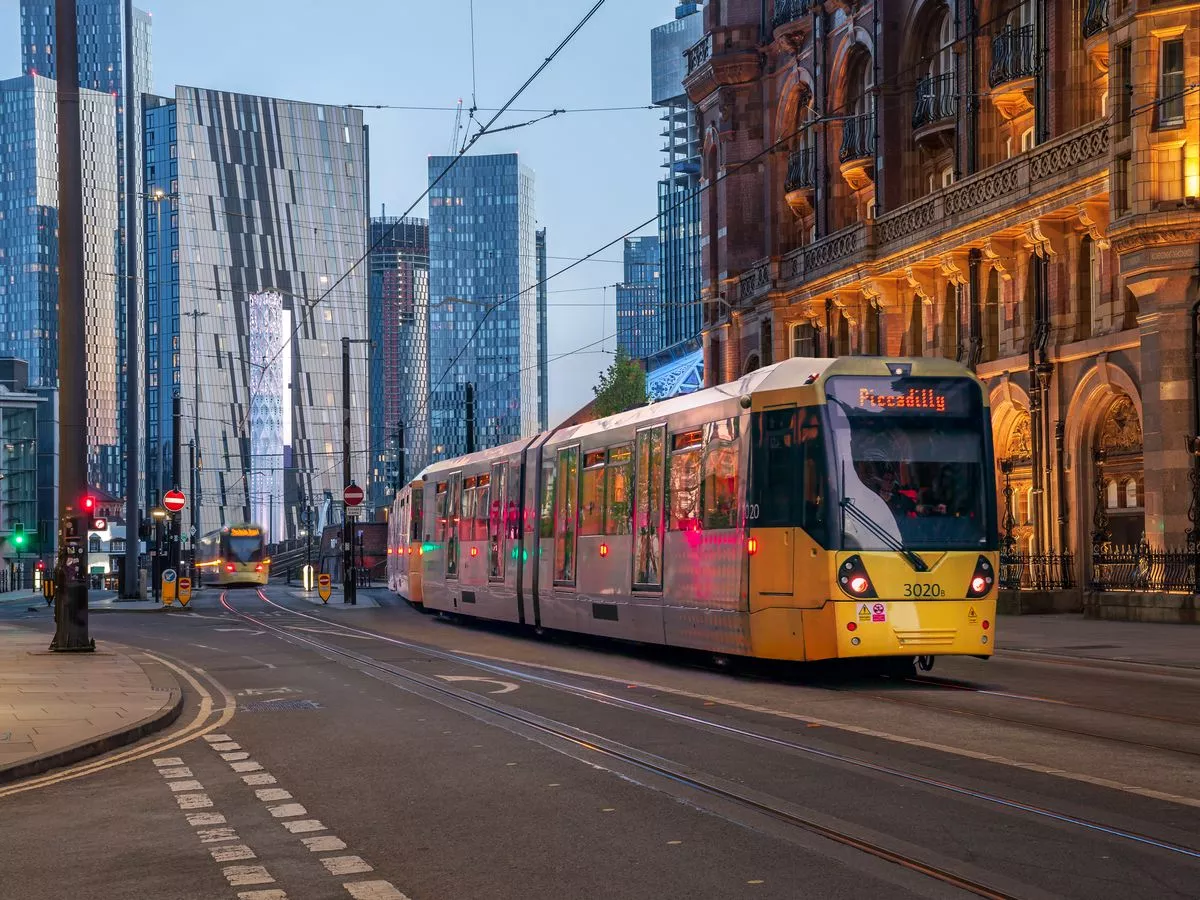Copyright The New York Times

I was born in America, but so much of who I am was shaped by my encounters with Africa. Partly that’s because I myself am half-African. My mother is Ethiopian, but I also spent much of my childhood in Kenya and Ghana, and then many years as a foreign correspondent in Western and Southern Africa. Globally, many wealthy countries are pulling back from Africa. We’re seeing a slashing of development aid, a decrease in loans and investment and several African nations bracing for the impact of President Trump’s tariffs. And in this moment of disruption, I think it can be helpful to look to the past for inspiration, which is why I wanted to talk with Howard French. He is a former Times foreign correspondent and bureau chief and the author of the new book “The Second Emancipation: Nkrumah, Pan-Africanism, and Global Blackness at High Tide.” It’s about the first democratically elected leader of independent Ghana, Kwameh Nkrumah. I think it provides a framework for how Africa and people of the Black diaspora can take the future of the continent into their own hands. Howard French, welcome. Howard W. French: Wonderful to be with you, Lydia. Polgreen: You have a long history with Africa, having gone there first in the 1970s and then returning to Western Central Africa as a correspondent in the 1990s. Looking at the U.S. relationship between sub-Saharan Africa — noting that this includes many different countries with lots of different policies — and America’s affinities and also distance from the continent, how would you describe that arc? What would you say most surprises you about this moment that we’re at right now with the second Trump administration? French: I think arc is a good way to begin the conversation because in the early years, I would even say decades, of my experience with Africa, the United States’ involvement with the continent was — if not, the front ranks of its foreign concerns — nonetheless, quite rich and quite thick. There was a major bureaucratic organization called U.S.A.I.D. which now practically no longer exists. The United States had client relationships, one might say, with many African countries back in those early years. Unfortunately a number of them were dictatorships, but these were relationships that engaged the entire national security and foreign relations establishment of the United States. And steadily over time, what we have seen is a dwindling of that kind of involvement. It didn’t happen overnight with the Trump administration. However, there’s been a rapid acceleration of this disengagement under the two iterations of Donald Trump’s presidencies. Polgreen: Now I think we’re seeing an almost neo-imperial country-by-country approach, a broader sort of dismissiveness. I think some of the moves that we’ve seen from the Trump administration, from the disinvestment of U.S.A.I.D. and programs like PEPFAR, to the remarkable scene that we saw of Cyril Ramaphosa, the president of South Africa, being dressed down and castigated — and frankly attempting to humiliate him in the Oval Office. Audio clip of Trump: You do allow them to take land. Audio clip of Ramaphosa: No, nobody can take —— Trump: And then when they take the land, they kill the white farmer. And when they kill the white farmer, nothing happens to them. Ramaphosa: No —— Polgreen: That feels like a difference, certainly in style, but also a break with a history of more careful strategic thinking with regards to the continent. French: Sure. So I think you can think of the United States’ involvement with Africa historically in the post-Cold War era as involving three buckets. One of them is humanitarianism. The other one involves economics. And the third of them involves conflict. The humanitarian part and the conflict part have dwindled and withered. The economic part, which, has all along been narrow, has become more and more extractive and I would say almost cynical. The United States is involved deeply in offshore oil and now in trying to catch up with China in mineral extraction, particularly in rare earths and other strategic minerals, but not in anything more transformative or more meaningful in terms of the economic lives of ordinary Africans. And so, on the one hand we’ve seen health initiatives, humanitarian initiatives, peace initiatives fade or atrophy, and we’ve seen an intensification of these narrow, very purpose-driven economic engagements with the continent. Polgreen: I think this is a good moment to maybe pivot to the past and try to understand how we got there. Africa has been looked to by global powers for centuries as a source of resources, people, raw materials, land, a place to put excess population. It’s found itself at the crossroads of many of these things. But one of the things that your new book really brings to life is just how central Africa was to global affairs during the early years of decolonization, and what a stark contrast that is today — where Africa does feel very much relegated to the periphery. So maybe a good place to start is: Who was Kwame Nkrumah, the subject and center of your book, and what made you want to write this book now? French: Kwame Nkrumah, the first president of Ghana, which was formerly the Gold Coast, was born at the wrong place in the right time. At the wrong place, meaning in an extremely remote part of a very middle-sized country in Africa. So nothing predestined him to any great future. But he was born in the right time, in the sense that his birth year, in the first decade of the 20th century, put him chronologically speaking in place to come into fullness as a figure just as the world was exiting World War II and as Africa and much of the world was being revolutionized by the aftereffects of World War II. And so Kwame Nkrumah enters the slipstream of history that way. And he kind of caught the wind in his sails of a postwar eagerness on the part of Africans, and with colonized peoples in other parts of the world, to cash a dividend — to cash a check for their participation in European war efforts. And the check being: their right to liberty, their right to political franchise, their right to independence. Polgreen: Kwame Nkrumah eventually becomes the first leader of a free Ghana. But one of the things that’s striking and is illuminated in the book is the extent to which his ideas were forged and formed by all of these different slipstreams, as you describe them. Could you talk a little bit about how that coming together led to his ultimate kind of pan-Africanist vision for Ghana and for the continent? French: Sure. During his childhood, Nkrumah’s mother somehow gets him into a one-room schoolhouse, and he gets noticed and sent to the capital just as an elite academy is being founded for the very first time in the country. And at this place, he comes under the influence of two very important figures — let’s call them coincidences — in his formation as a political person. One of them is a man who, almost incredibly, is going to become a future president of Nigeria: Nnamdi Azikiwe. The other is a man named Kwegyir Aggrey, and he was like an assistant school master at the academy, an Indigenous Gold Coaster who had been to Columbia University in the United States and had come under the influence, as had Azikiwe, of Garveyism. In the early 20th century, Marcus Garvey is leading a movement of Black nationalism and what we could call pan-Africanism — that Africa must unite and have a continentwide government. So these two people, both of whom had been to the U.S. to go to school, persuade Nkrumah to go to the U.S. for school. Almost no Ghanaians go to school overseas at all. But those that did went to school at elite British institutions. Nkrumah goes to New York. It’s only for a few days, but he lands in Harlem in 1935, at a time when practically every street corner in Harlem has some kind of oration or political activism taking place. This is all new to Nkrumah. He then goes on to Lincoln University in Pennsylvania. He rapidly accumulates four degrees and he starts doing a variety of things that take him up and down the East Coast. He starts visiting Howard University. Just then Howard University is becoming this extraordinary platform of Black intellectual talent that’s drawing people from all over the world — C.L.R. James and Eric Williams and Ralph Bunche. Nkrumah enters into conversations with people like this, and with people like W.E.B. Du Bois and George Padmore. And the figures that I’ve named all tap ancient — we may call them ancient — roots of Black nationalism. This notion of Africa’s need to reconstitute itself and of Africa’s need to become a home for Black people wherever they may find themselves, is really a very old idea. It goes far back into the 19th century, in the United States, to the very beginnings of the post-bellum period after the Civil War in this country. And Nkrumah as a young man is encountering the present-day leaders of a movement who are all part of a much longer lineage and who are all aware of this older intellectual history. Polgreen: The idea that Black people across the world would want to return to Africa or would have some kind of natural home in Africa, I think is a really powerful one that tapped into the imaginations of many people going back into the 19th century, as you say. And it’s striking to me that Nkrumah arrives in the United States at a moment when the civil rights movement is still kind of in its early years and the great successes are a couple of decades in the future — where it feels at a low ebb. I’m curious about this back and forth that we see over the course of his life and the idea of a return to Africa being an attractive, desirable outcome of the longing for liberation of Black people who were caught up in the slave trade. French: So in the United States, we are familiar with a movement by elite groups in this country to send Africans, people of African descent, back to Africa. This is how the country of Liberia was founded, for example. In Britain, a parallel movement founded Sierra Leone. It was how to get rid of Black people in the midst of largely white societies. What we are less familiar with is parallel to that, but in tension with that, there were movements of people of African descent early in the post-bellum period and the succeeding decades to constitute their own back-to-Africa movements or back-to-Haiti movements. Haiti was the second free republic in the Western Hemisphere. This was actually a big deal. It was not a marginal thing. It produced a lot of literature and a lot of intellectual production as Black people struggled with the challenge of how to reconstitute whole lives for themselves, where and how to find citizenship, how to find dignity in a world that had conspired from time immemorial — it seemed to most Black people at the time — to deny them of these things. Polgreen: You’re writing about Kwame Nkrumah at this moment and I’d be curious to hear you reflect about his ideas and legacy and why you think he’s important to the conversation that we’re having globally at this moment. French: Nkrumah had two ideas that are worth embracing or at least upholding. One is that Africa — as constituted by European imperialism — that that Africa would never serve African interests. Nkrumah understood this early and never let go of the fact that an Africa subdivided into many small countries, many of them landlocked, would never have the population size or domestic market capacity to thrive, or would never have sufficient access to international trade to develop themselves. That’s the first idea that I think we should principally associate with Nkrumah and his insights. The second is that Africans and the African diaspora are each other’s most important resource. We can think of a resource as a source of investment, trade or tourism — and all of those are important. But what I think Nkrumah had in mind is that an African diaspora — for example, African Americans who are deeply engaged with Africa, who freely associate themselves with Africa, who cherish their history as people derived from Africa — will exert political influence within their own domestic setting to promote the interests of Africa. In other words, they can bend the curve of American policy toward Africa, or if they are French descendants of Africans, bend the curve of French policy toward Africa — on and on. I think Nkrumah understood that overcoming the past for Africa meant leveraging these large diasporas in order to change the way that Western countries understand Africa, the way they think about Africa, the way they engage with Africa. And he understood that this — let’s call it public opinion — resource was an invaluable asset. So Nkrumah arrives in the United States for the first time as a politician in 1958 and he has enormous crowds that receive him. He has to turn down invitations in lots of places. They’re giving him the key to the city, offering him dinners at the Waldorf Astoria and places like this. He drew huge gatherings of African Americans — the cream of the cream of African American society and ordinary people just jubilant to see a Black person descend from a modern airplane, conducting himself as a head of state, and such visible dignity associated with him. Nkrumah understood the power of this sort of thing and was able to imagine a future that if Africa could engage it, where activating the imaginations of diasporic peoples would allow Africa to enter a different space in the global framework. Polgreen: It’s a profound vision. When I moved to Ghana in 1990 as a teenager, I actually lived down the street from a woman from Compton, Calif., who in 1957 had written to Nkrumah just as an ordinary Black person who had been involved in civil rights activism to ask if she could come to his inauguration. And she used to tell me incredible stories about going to Ghana for the inauguration. And then ultimately she moved to Ghana, married a Ghanaian and raised a family there. She formed part of that legacy that you’re talking about between Black Americans and Africa and Ghana specifically. But it also speaks to, in some ways, the lost promise. The population of Black Americans living in Ghana has never been more than a few thousand people. Now you have so many Ghanaians coming to the United States and seeking opportunity here, as Kwame Nkrumah did. Maybe you could sketch out sort of where things started to fall apart and how we went from this extraordinary high tide moment for sub-Saharan Africa, for Ghana in particular, and ended up in a place where Africans now are seeking to come to the United States and see it as the place of opportunity. French: I would just say to begin, I think that the idea of Ghanaians and other Africans coming to the United States in larger and larger numbers — up until recently larger and larger — is not necessarily for me in any way a source of despair or pessimism about Nkrumah’s vision. I think that there’s a potential there for these people to do the reverse of what Nkrumah was saying. In other words, not waiting for African Americans to reform America’s view of Africa and to renovate America’s engagement with the continent, but Africans from Africa, as they relocate and as they integrate these societies, that they themselves can take on this work. I teach at Columbia University and I speak at lots of universities around the country. American higher education is full of people from Africa, Nigerians in particular, but people from all over the continent. Those young people have an important role to play and potentially in the direction that Nkrumah had in mind. So Nkrumah had a big picture vision of what activating the imaginations of people could look like, but he didn’t necessarily anticipate that piece of it. In terms of where did things go wrong — for the United States, for African Americans, for Americans, this was always going to be an uphill battle. I grew up in a time when popular culture in this country actively discouraged Black people to think of themselves as Africans or associate in any way with Africans. Popular culture cultivated an idea of light skin being good, relative to dark skin and certain types of hair being good compared to other types of hair and things like that. So the cultural conditions of this country have not ever really been terribly favorable to a notion of promotion or embrace of Africa. Africa is the “dark continent,” after all. Africa has always been a place of primitiveness, of disease, of evil, of corruption, of pretty much a whole grab bag of negative things. And overcoming that was always going to be a difficult matter. So here we are. You said there’s only a few thousand African Americans in Ghana. I’m not really sure of the numbers, but other African countries have discovered some of the potential here. Senegal draws large numbers of African American visitors and some number of residents. Benin, nearer to Ghana to the east, has just in the last year passed a law that — for anybody who can show through their birth certificate that they are descendants of Africans — they can automatically become citizens of Benin. There are a few other African countries that are beginning to toy with ideas like this. So this is something that recurs and it rises and fades but never really goes away. And I wouldn’t want to predict that we’ve seen the end of it. Polgreen: I’m struck by what you’re saying about the importance of Africans coming to the United States. It’s one of the fastest growing number of immigrant groups in the country. In 1980 there were, I think, about 130,000 sub-Saharan immigrants living in the United States. And in 2019 there were over two million. I think this has profound implications for Africa. It also has profound implications about what it means to be Black in America. As the proportion of Black Americans grows to include bigger and bigger numbers of not just African immigrants but their children and descendants and there’s intermarriage — perhaps this is an overly utopian vision, but it does suggest a kind of pan-African possibility of the kind that Nkrumah maybe hoped for. French: I recently gave a talk in Brooklyn and my moderator was Annette Gordon-Reed, the great Harvard University law scholar and historian. And she was telling me that in many of the classes she’s taught in recent years, there have been more people from Nigeria alone than there have been what has traditionally been known as African Americans. So our entire concept of what it means to be a Black American is in flux right now. And you don’t see a lot of discussion at the media level or at the national level of this sort of thing. But just beneath the surface, there’s a lot of effervescence. African Americans and Africans are having to figure each other out to a degree and with an intensity that hasn’t been the case until very recently and hasn’t always been smooth, by the way. Each comes with its own prejudices and its own notions of what it is to be a Black person in this world. But given the numbers that you cite, this is a dynamic situation. There are going to be some redefinitions and reconfigurations taking place. Africa is already — and stands to be much more in the remaining decades of this century — the greatest marginal source of young people in the world. Most young people are going to come from Africa. We are in a moment of great hostility toward immigration in the United States. This is taking place here at a time when we are also aging rapidly as a society, when our own fertility is stagnant or in decline — as is the case in Europe and most other rich societies. All of this rich world is going to have to wrestle with the notion of how to engage with Africa in new ways, because their survival, as places that depend on consumption, labor, invention, entrepreneurialism, energy — all of these things are going to need young people. And Africa’s going to be the place where the young people come from. Polgreen: What do you see as opportunities for some of the most forward looking African leaders in this moment, given how quickly the global order that we’ve known is changing? Are there areas of opportunity or areas of particular danger? What might those leaders take from Nkrumah’s successes and failures in building a cohesive state and a unified continent? French: If you’re an African leader today, the signals that you are getting from the international environment are extremely negative. Europe’s primary impulse with regard to Africa is how to prevent increased migration from Africa. The United States’ primary impulse toward Africa is very similar with an extra layer — I’m just going to call it, at least at a rhetorical level — of racial hostility. Calling a whole continent a place of [expletive] countries, for example. You have this whole anti-trade piece from the Trump administration penalizing African countries, which don’t amount to a huge amount of American trade to begin with — with high tariff levels and the like. So if I’m trying to imagine myself in the position of leadership of an African country, I think Nkrumah has a lot to say to me. And Nkrumah’s message in the context of this question is that we can’t wait for anybody else to look out for us. We can’t wait for anybody else to do us favors. The world is a hostile place and Africa, as constituted today, 54 countries — many of them landlocked and most of them small and rather insignificant — is not going to be able to fend for itself very well under these terms. And the most sensible road map is for us to pool our resources. Now Nkrumah’s ultimate dream was of a continental government. I’m quite certain I’ll never see a continental government of Africa, and I’m not sure that’s even the best thing for Africa. However, Africans need to completely remake or reimagine the way they engage with one another. They have to erase the effects of borders for discouraging trade, for discouraging movement of peoples, for discouraging cross immigration. I think African countries need to compete with one another on the basis of attracting talent, in terms of producing new goods, in terms of generating more energy at cheaper rates. The answer for Africa in a hostile world is to say: How do we scale up? We scale up by erasing some of the effects of the borders that we have inherited and finding ways to pool our efforts to grow our markets collectively. I think all of that is straight from the Nkrumah playbook. Polgreen: I think there is a sense that the idea of Africans coming together and figuring out how to move forward — if not with broad unity, then with at least some common cause and sense of purpose — that seems like an obvious and very important, albeit difficult, thing to do. I wonder what the West and the rest are going to risk if they don’t think differently about their engagement in Africa. What does the world lose by not engaging with Africa in a deep and serious way? French: There’s tremendous opportunity costs involved. Africa is going to double in population more or less before 2070. That means Africa will have more than three billion people by 2070. So what are the opportunities here and what are the risks? The opportunities here — we tend to think too narrowly. We ask: What are we going to lose vis-à-vis China? As if this is only about the U.S. and China. I don’t think it’s about the U.S. and China. I think it’s about where consumption in the world is going to come from or not come from. If Africa’s not consuming, that is a drag on the global economy that will cost us. Africa is going to be urbanizing. Africa, in fact, is urbanizing faster than any other continent ever has urbanized in world history already — right now. This is an opportunity. Do we want to be part of this urbanization story? If we don’t though, what are the risks? I don’t mean to disparage Kinshasa, a city that I love, but Kinshasa is awash with slums right now. So do we want African cities that are awash with much larger slums? Cities of 25 or 30 million people where poverty is — broadly speaking — the norm? Even if we decide that we have no interest in the matter and that we’re not spurred by the sense of opportunity, the risk is going to land in our laps anyway. Because the people whose lives are locked up in slums, those people are not going to sit still. Many more of them are going to seek to emigrate from the continent. And I don’t say this as somebody who fears African immigration. I say this as a person who fears the effects on Western opinion in driving all sorts of perverse political outcomes because of xenophobia. So do we want to be involved with Africa in a positive-sum way, in a way that rewards us, economically speaking? Or do we want to simply be standoffish toward Africa, to see it as a place without promise and pretend that distance will protect us, that we will be shielded from the effects of whatever’s taking place in Africa because we’re on the other side of an ocean? That’s a delusion. You can tell from what I’m saying that I believe in the former — that we should engage in Africa in a much deeper way.



